- Home
- Lorenzo Carcaterra
Gangster Page 6
Gangster Read online
Page 6
Pudge stared over at Angelo and nodded. “Same goes for me,” he said. “And for the kind of work we’re about to get into, that might be all that we need.”
• • •
ANGELO AND PUDGE stood silent and at attention, watching as Angus McQueen finished a game of solitaire. He had small hands, nails neat and trimmed, and he flipped the cards over gently onto the top of the polished wood table. There was a smoldering cigarette tilted into an ashtray on his right and an empty cup of coffee to his left. He spoke without lifting his eyes from the cards.
“Ida tells me I should put you two boys to work,” Angus said, studying the jack of spades in his hand. “You agree with her?”
Pudge looked at Angelo, nodded, then turned back to McQueen. “Yes,” Pudge said. “We’re ready to work.”
“At what?” McQueen asked.
“We’re up to doin’ anything,” Pudge said.
McQueen picked up his cigarette and took a long pull on the wet tobacco. He looked up at the two boys, his eyes squinting from the swirling lines of smoke. “Anything?” he said. “That covers a lot of territory.”
“I’m not afraid,” Pudge said. “If that’s what you’re thinkin’.”
“Well, I know you’re not afraid of me,” McQueen said, a small smile creeping across his face. He rested the cards facedown on the table and stubbed out the tip of the cigarette. “Let me take some time and think on it,” he said, pushing his chair back. “See what I can find. It’ll be runner’s work at first. Nothing big and nothing that pays great.”
“We ain’t picky,” Pudge said.
“You can’t afford to be,” McQueen answered.
He walked around the table and stood next to Angelo, resting a hand on the thin boy’s shoulder. “I heard about your run-in with Banyon,” he said. “I hope it hurt.”
Angelo looked up at McQueen and nodded. “Yes,” he said. “It hurt.”
“Good,” McQueen said. “That means you made yourself an enemy. And if you’re going to work for me you’re going to have plenty of enemies.”
“And don’t count on having too many friends either,” Ida the Goose said.
“You only need yourself one of those,” Angus McQueen said, reaching into his vest and pulling out a fresh cigarette. “A hundred enemies and one friend will make you a rich man in business. Any business.”
Pudge shrugged and pointed a thumb at Angelo. “I got me no problems there,” Pudge said. “So long as I’m with him, I’ll have more than my share of people who hate me.”
Angus McQueen lifted his head back and laughed. “You’re a lucky lad, then,” he said. “You haven’t even started and already you’re a step ahead.”
“Might even die a rich man,” Ida the Goose said, smiling. “You play it right.”
Angelo glanced at Pudge. “I will not let you die,” he said through lips that barely moved.
“Thanks,” Pudge said. “I’ll sleep better now.”
Ida the Goose and Angus McQueen exchanged a nod and a smile.
• • •
PAOLINO STOOD KNEE-DEEP in the clear waters of City Island Bay, his pants rolled up to his thighs and his hands sifting through the bottom’s soft sand. He looked up at Angelo sitting on the center plank of a rowboat and smiled. The boy, a half-filled bushel of clams resting between his legs, smiled back. The hot morning sun beat down on both of them.
“How many do we have so far?” Paolino yelled across the short distance separating them.
“About fifty,” Angelo called back. “Maybe more.”
Paolino squinted up at the sun, its warm rays turning the pall of his white skin a bright shade of red. “Three more hours,” he said. “By then, the basket will be full.”
“Are all these clams for us?” Angelo asked, his white T-shirt bunched up and hanging around his neck.
“As many as we can eat,” Paolino said. “The rest we give to the people in our building.”
“Do you want your drink, Papa?” Angelo asked, reaching for a bottle of red wine wrapped in cloth.
Paolino rinsed his hands in the clear water and walked toward Angelo. The two of them had left lower Manhattan in the middle of the night and hitched a ride on a friend’s milk wagon heading up to the Bronx to make its deliveries. They slept for most of the five-hour trip and stared out at the passing scenery during the rest of it. A gulf was developing between the boy and his father and Paolino felt powerless to prevent its expansion. The hours he spent with his now-eight-year-old son were too few to matter, stolen minutes jammed in between work and sleep. It was one more fault he could lay at the doorstep of his new homeland.
Paolino had cursed Italy for the ease with which it submitted to the dark hands of organized crime. But now, here in New York, he saw greater dangers. The streets of lower Manhattan sucked up boys like his Angelo and thrust them into a sinister realm where their torn pockets would be lined with wads of easy money. At such a young age Angelo had already glimpsed an escape route from the cramped confines of his dead-end tenement life.
Paolino flipped his shirt over the side of the boat. The sun and sparkle of the water reminded him of an earlier time, when his days were marked by long walks across green hills and fresh meadows and along tree-lined roads, herding his flock, his own future as clear to him as the overhead sky. That short period seemed galaxies removed from where he now stood. He felt as if he were in the middle of someone else’s life, cruising by, honing in on the memories of a stranger.
“I do not remember the last time I was out in the sun,” Paolino said. “It feels good.”
“How much longer will we stay?” Angelo asked. His English was improving daily, deterred only by his occasional stutter and living among New York Italians, who found it much easier to speak in their own tongue than to add the demands of a new one to their burdens.
“Milk wagon will be by to pick us up at four,” Paolino said, taking the wine bottle from his son. As he swallowed the homemade brew, Paolino stared at the boy’s face, the youthful features so much a carbon copy of his wife’s that it made him wince. “Why? You have someplace to go?” he asked, wiping his chin and handing Angelo back the bottle.
“Pudge needs me,” Angelo said.
“He needs you to do what?” Paolino asked.
“I don’t know,” Angelo said.
“Listen to me, Angelo,” Paolino said, a wet hand resting on top of the boy’s knee. “I know it is hard for you now. The way we live is not the best. But it will be better. Hard work will make it better. That is the only way I know and the only way I want to teach you.”
“Angus McQueen does not work hard,” Angelo said. “And he lives better.”
“Angus McQueen is a criminal,” Paolino hissed, hatred for the man and his methods coloring his eyes. “He’s not good enough to work. He lives off my work. My sweat. He will show you a life that is wrong. A life filled with poison.”
“He show me how to play cards,” Angelo said.
“You are young still,” Paolino said. “When you are older, he will show you more than card games.”
“Are you afraid of him?” Angelo asked.
“I am afraid for you,” Paolino said. “I know what harm these people bring. I saw it in Italy with my own eyes. I do not wish to see it happen here. Not again.”
“Is that why you came to this country?” Angelo asked, staring at the bushel of clams.
“I came for you,” Paolino said. “I wanted a better life for you than what we had in Italy. I cannot do that if you choose these other people over me.”
“They are my friends,” Angelo said, lifting his eyes to Paolino.
“But they are my enemies,” Paolino said. “If you stay with them, become a part of them, you cannot ever be a part of me.”
Angelo looked away, his eyes scanning the bay, his face soft and warm. “I love you, Papa,” he whispered. “But I do not want to be like you.”
Paolino stared at his son’s profile and fought back the urge to cry. He had
always thought of Angelo as weak, ill-suited for the demands of a harsh country. He knew now that he was wrong. Behind his son’s frail body there was hidden a hard core, one that would absorb all that it needed to survive.
“You will not be like me, Angelo,” Paolino said, stroking the boy’s head with a wet hand. “You are too strong. There will be many fears to be faced in your life, but that will not be one of them.”
Angelo turned back to look at his father, the blazing sun directly above his head. “You rest, Papa,” he said. “I will finish the clams.”
Angelo jumped into the water, took a few strides closer to land and spent the rest of the afternoon in the hunt for buried clams.
• • •
JOSEPHINA AND ANGELO walked down the crowded street, the old woman’s right hand at rest under the boy’s left elbow. It was late afternoon on a summer’s day and the streets were crammed with men coming home from jobs and women rushing to steamy apartments to begin preparing the evening meal. Angelo clutched a small paper bag filled with vine-ripe tomatoes and red onions to his chest. He and Pudge were working as part-time runners for Angus McQueen, making twice-weekly pickups and money drops in the back rooms of bars and diners. Angelo was paid two dollars a week and the weight of the money felt good in his pocket. It was his first taste of illegal money and he loved it.
“Money is the only reason anybody ever becomes a gangster,” Pudge would often say, usually after a big meal. “Everything else follows that. The money is the bait that draws you in. You don’t believe me, then name one gangster worth his weight in vinegar who started out in life anything but dirt poor. The cars, the broads, the fancy digs, that all comes later, but it’s the bite of cash that gets you hooked. Then, by the time you got enough socked away that you want out of the life, there’s nowhere for you to go. Being a gangster is all you know and all you can be. And it’s how you’re gonna die. All of it off of that first dollar you made back when you were a kid.”
“I would like to buy you something,” Angelo said, looking up at Josephina. “A gift.”
“What is there that I need?” the old woman said with a shrug. “We have our food for tonight and fresh milk for the morning. Save your money. Don’t make it fly away as soon as it lands in your hands.”
Angelo looked at the passing stands, their wooden crates packed full with watered-down fresh fruit and vegetables, rows of fish and meat resting on huge slabs of ice next to them. As they turned a corner, he spotted a small man in a wool sweater, roasting chestnuts over the lid of an open barrel. “Wait here,” he said to Josephina, giving her the tomatoes and onions to hold. She stood and smiled, watching as the vendor handed Angelo a paper bag filled with roasted chestnuts. He paid the vendor, walked back and handed her the bag. “I know you like them,” he said.
Josephina took the bag from Angelo and nodded, touched by the gesture of a boy she had grown to love. “I used to roast them for my husband,” she said, staring straight ahead. “We would eat them in the evening along with one or two glasses of wine. It was our time together. I always liked the way it made the house smell. Now, when I walk past one of those carts, the smell of the roast reminds me of my husband and those nights.”
“I did not buy them to make you sad,” Angelo said.
“I am not sad, my little one,” Josephina said. “Those are my happy memories and they help me to forget that I live in such a place.”
“Papa always says that our life here will soon get better,” Angelo said. “For him and for all of us.”
“It will get better for some,” Josephina said. “But your papa will not be one of them. He is a dreamer who does not know how to bring his dreams to life.”
“He is mad with me since I began my work for Angus,” Angelo said. “He says the money I get from him is blood money.”
Josephina stopped and turned to face Angelo. “All money is blood money,” she said. “Remember that like you remember your name.”
“I want to give him the money to help pay the bills,” Angelo said. “But he won’t take it.”
“He will never take it,” Josephina said. “He has his code and, in time, you will have yours.”
“But I want to help,” Angelo said.
“The best way to do that is to help yourself,” Josephina said. “Learn all you can about this world and go out and find your place in it.”
“Why?” Angelo shrugged. “They hate us in this world.”
“Time will change all that,” Josephina said. “Some day soon, the door will open for the few who are ready. Make sure you are one of them.”
“And I will take you with me,” Angelo said, resting his head against the old woman’s large arm.
“That would make me very happy, little one,” Josephina said with a wry smile, pausing at the base of the tenement stoop. “But the future arrives without invitation and we never know what burdens or pleasures it brings.”
“Pudge is coming for supper,” Angelo said, helping Josephina walk up the steps. “Is that okay?”
“Only if he comes with an empty stomach,” Josephina said. “Tomato and onion salad, fresh bread, lots of wine and, thanks to you, roasted chestnuts. He must be ready to eat nothing less than a feast.”
“Pudge loves to eat,” Angelo said. “Ida said the only time he doesn’t have food in his mouth is when he sleeps.”
“Then tonight, your friend Pudge will be a very happy young man,” Josephina said.
• • •
IN THE LATE fall of 1914, poor living conditions and old age caught up to Josephina. She was felled by a string of illnesses—a monthlong battle with the flu damaged her lungs, a kidney infection left her weak and vulnerable and the shooting pain in her lower back could no longer be attributed to excess weight. For the first time in her life, Josephina was bedridden and dependent on others.
The medication she was given made her drowsy and, at times, delirious. As Angelo watched a parade of doctors march in and out of the apartment, he kept a steady vigil. He tried to cheer the old woman by repeating the bawdy jokes of southern Italy she had so often told him. He held her hand when the pain grew strong and watched silently as she struggled to regain her breath. To help ease her through the day, Angelo would ask her about her life in Italy and only then, as the memories slowly began to take root, would he see the color return to her face.
“Do you miss it?” Angelo asked.
“It is my home,” Josephina said. “America will never be that for me. It is just a place to live. Nothing more.”
“Why did you leave?” he asked, handing her a hot cup of water boiled with lemon skins.
“My husband was murdered,” she said, staring at the boy with hard eyes. “He was a respected man, but to someone younger and looking to make an impression that respect meant nothing. He was shot in the back and left to die.”
“What happened to the man who shot him?”
“It was not my place to ask,” she said. “I needed to bury a husband.”
“What was he like, your husband?” Angelo asked, taking the cup from her and placing it on a shaky end table.
“To me, he was kind and gentle,” Josephina said. “To others, he was what his work called for him to be.”
“Was he a boss like Angus?”
“Yes,” Josephina said, nodding, her face cringing at the bolts of pain winding their way through her body.
“Papa said he was a killer,” Angelo said, reaching for a wet cloth and resting it across Josephina’s forehead.
“He killed only men,” Josephina said, forcing herself to sit up, her right hand gripping Angelo’s arm. “He would never do harm to a child. Any child. Especially one that was his own. Such work is best left to those with the stomach for it.”
Angelo pulled his arm away from Josephina’s grip and stood against the side of the bed. The blinds were drawn, but the heat of the hot afternoon sun still burned through. “What do you mean?” he asked, his voice steady, the wheeze coming up from his throat the only
betrayal to his nervousness.
Josephina took a deep breath, the air rattling around her lungs like crushed chains. She picked up the cup and drank the last of the lemon water. She looked at Angelo, the soft tears of a hard woman in her eyes. “I cannot turn a son against his father,” she said. “No matter the sin.”
“He is my father,” Angelo said. “I will not turn away from him.”
“You are being shown another way by a harder set of hands,” she said. “And there is no place for your father in such company.”
“I will make a place for him,” Angelo said, his soft eyes staring deep into Josephina’s weary face.
The old woman smiled and nodded, wiping her damp upper lip with a crumpled handkerchief. “And what of Angus and Ida and Pudge?” she asked. “Will you always make a place for them?”
Angelo hesitated and then nodded. “Yes,” he said.
“You cannot have both, my little one,” Josephina said. “One day soon, you will have to choose between them. Such a choice will clear the path for the life you will lead as a man.”
“I cannot turn away from my father,” Angelo said. “He has given up all he has for me.”
“And will you give up all that you may one day have for him?” the old woman asked. “Would you do that for your father?”
“Yes,” Angelo said.
“Then you must know,” she said. “And it must come from my lips since I am the only one who holds the truth. After my death it will be buried alongside me.”
“Tell me, then,” Angelo said. “Please.”
“You had an older brother,” she said. “Back in Italy. His name was Carlo and he died when he was eight years old. About the same age as you are now.”
“How did he die?” Angelo asked, removing the wet cloth from Josephina’s forehead.
“He was shot,” she said, the words leaving her mouth as if they were each embraced by a bubble. “Killed by a man he trusted and loved.”
“What man?” Angelo asked, standing erect, bracing for the answer.
“Your father,” Josephina said. “Paolino murdered his own blood to keep him away from a life with the men of the camorra.”
“Men like your husband?” Angelo asked.

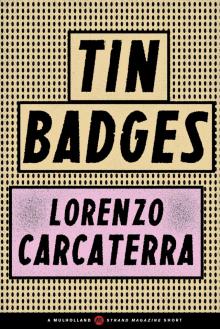 Tin Badges
Tin Badges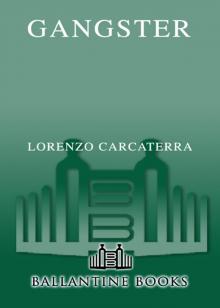 Gangster
Gangster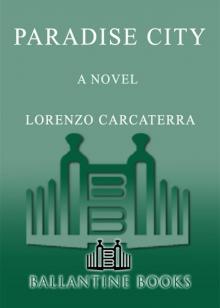 Paradise City
Paradise City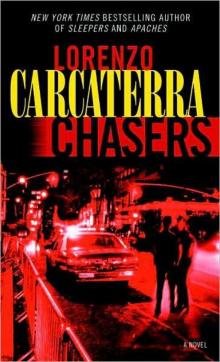 Chasers
Chasers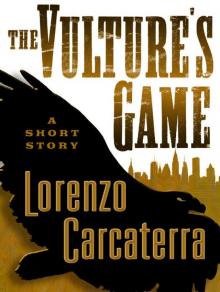 The Vulture's Game
The Vulture's Game Payback
Payback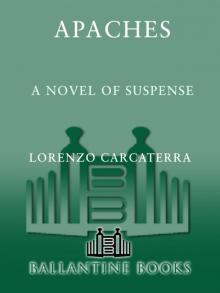 Apaches
Apaches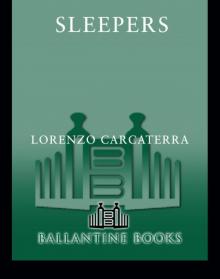 Sleepers
Sleepers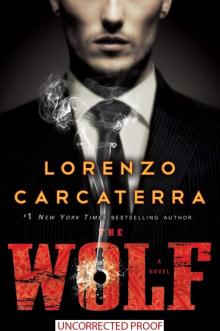 The Wolf
The Wolf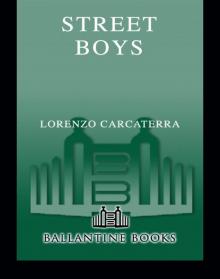 Street Boys
Street Boys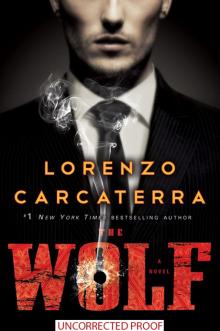 The Wolf: A Novel
The Wolf: A Novel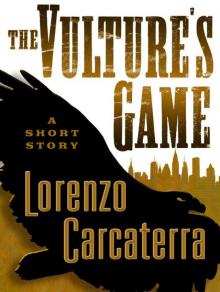 The Vulture's Game (Short Story)
The Vulture's Game (Short Story)